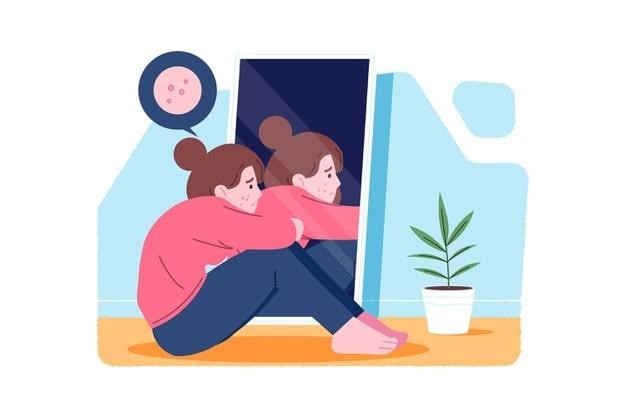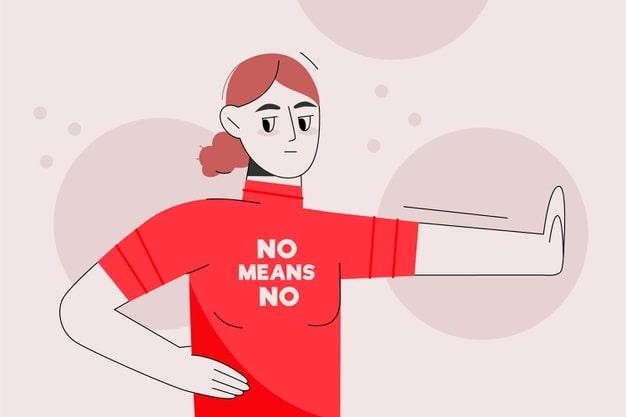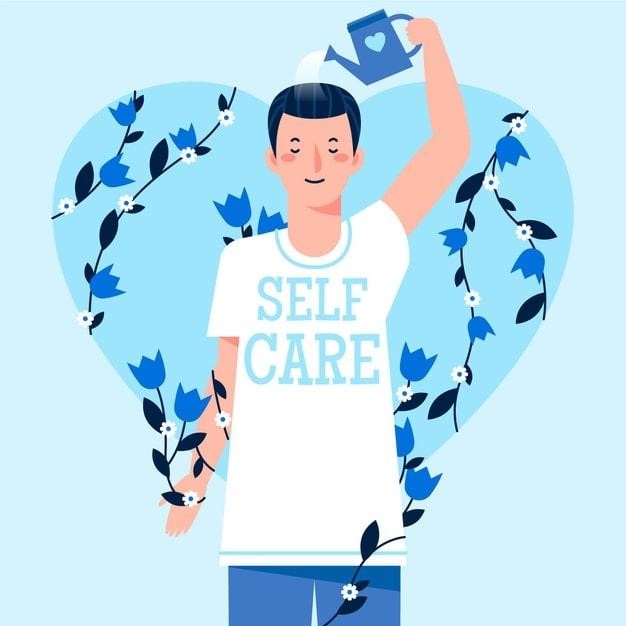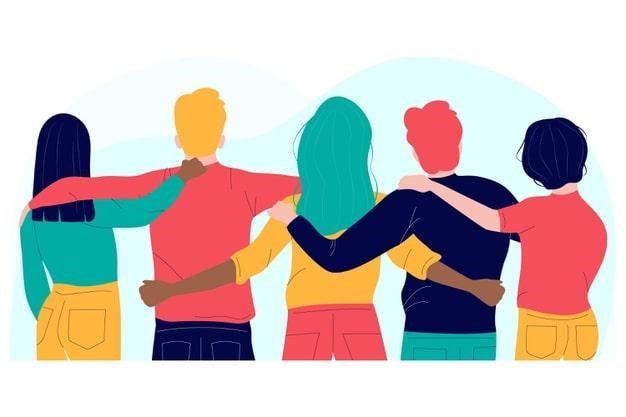Understanding Enmeshment: Causes, Signs & How To Break Free

List of Contents
Forming attachments is natural and all of us – from childhood to adulthood – form attachments with our parents, siblings, or partner/spouse. After all, it is a fundamental part of our emotional and mental development.
When we grow up, we gradually detach ourselves from our parents and it is essential for growth. Emotionally detaching ourselves from our parents is important for us if we want to function healthily in our adulthood.
But more often than not, many people do not go through the detachment phase and by not doing so, they are unable to get a clear sense of their identity.
The theory of enmeshment was first introduced in the 1970s by the family therapist Salvador Minuchin. The term ‘enmeshment’ is often used in a family therapy setting. Enmeshment describes relationships that are so entangled with each other that the personal boundaries are blurred. These blurred boundaries cause over-concern for another person and it causes an individual to feel excessive emotions. These things can prevent a person from gaining a sense of autonomy.
For example, an enmeshed family dynamic can be when parents are over-involved in their children’s life. This can eventually lead to a child not being able to emotionally or mentally develop on their own. Another example of enmeshment can be;
When a child experiences enmeshment with their parents, they will be unable to separate their feelings from that of their parents. This will lead the child to develop a poor sense of self and no self-identity. Enmeshment can create dysfunctional family dynamics and can leave a lasting impact on an individual in their adulthood.
What Causes Enmeshment?
What causes enmeshment can differ from family to family. Enmeshment can be caused if an individual was raised in an enmeshed family dynamic. Growing up in such a family dynamic can make it difficult to form mature and healthy relationships. Another enmeshment cause can be; if parents are overly involved and over-protective of their child’s daily life.
Effects Of Enmeshment

Enmeshment trauma can have a long-term impact on a person’s personal life. Some of the effects of enmeshment can lead to a person developing:
- Personality disorders
- Mental health disorders
- Self-esteem issues
- Personal boundaries/space issues
- Relationship issues
- Eating disorders
- Substance abuse
- Self-destructive behavior
What Are Enmeshment Signs?
Enmeshment trauma usually begins in our childhood, so if you’re able to relate to these signs, then you grew up in enmeshed family dynamics. Enmeshment signs can include:
- Lack of personal boundaries – emotional and physical
- Wanting to take care and pleasing others first
- Feeling responsible for others’ well-being
- Feeling guilt over detaching yourself from the family
- Parents being overly involved in your life
- Parents well-being centers around you
- Parents imposing their wishes over you
- Parents and other family members oversharing their emotions
- Having trouble saying ‘no’
- Having little to no sense of self
- Feeling wanting to fix others’ problems
Why Boundaries Are Important…

Establishing personal boundaries is what creates healthy and functional family dynamics. Boundaries create a space – emotional and physical – that is needed for a person to grow emotionally healthy. Not only do boundaries respect the needs and feelings of everyone but they also help in communicating expectations and establishing what is acceptable and what’s not.
As an individual grows, boundaries allow them to allow freedom, privacy, and independence in developing their beliefs and values. In a healthy and stable family dynamic, a child is encouraged to emotionally separate themselves, pursue their dreams, and become independent. These values are non-existent in enmeshed family dynamics.
In an enmeshed family, a child grows up believing:
- They are responsible for their parents’ emotions
- They are expected to care for their parents
- They are expected to prioritize their parents’ emotions, feelings, and needs over their own
- They don’t have an individual identity
Some ways enmeshment can affect your development as an adult are:
- You feel the need to fix everyone’s problems
- You take responsibility for others’ emotions and feelings
- You have trouble telling the difference between your emotions and those of others
- You struggle with the idea of personal space
- You feel upset when someone wants to do something without you
- You get entangled with others’ drama easily
- You define your self-worth based on how useful you are to others
- Your sense of self and identity is poor
- You don’t have many hobbies or interests outside of your relationship
Enmeshment trauma is a form of control that can cause a person unable to separate their emotional worth and identity. This kind of attachment can be easily mistaken for a “tight-knit family” dynamic. Setting healthy personal boundaries is important to form self-identity, self-worth, and emotional growth.
While forming connections and bonds with our family members is important for our overall well-being and growth, having an unhealthy and enmeshed family dynamic can take away a person’s sense of self and can cause difficulty in forming and maintaining healthy and positive relationships in the future.
Overcoming Enmeshment
Here are some ways how to break enmeshment:
1. Explore Your Interests
The first step in overcoming an enmeshed family dynamic is to explore what interests you. It might be difficult to do at first but exploring your passions and interests outside of your relationship is important. Join a club or group to explore where you can connect with others. The important thing is to explore what interests you outside the boundaries of your relationship.
2. Set Healthy Personal Boundaries
Setting healthy personal space is very essential when it comes to overcoming enmeshed family dynamics. You need to focus on your feelings and what is acceptable and appropriate v/s what’s not. Pay close attention to what makes you comfortable and put your foot down where you feel uncomfortable and discomfort.
3. Connect With Yourself

A person who’s grown up in enmeshed family dynamics can find it difficult to find solace in their own company hence it is important to connect with yourself. Enmeshed family dynamics take away your sense of self and to strengthen that, you need to set aside some “me time” to learn more about yourself.
What makes you happy outside your relationship? Do you like painting, gardening, reading, or anything else? Dedicate your “me time” to your favorite activity. You can also try practicing self-care, meditation, yoga, or being in nature. Journaling is another wonderful way to help you understand yourself and your feelings.
4. Establish Meaningful Relationships

Forming and establishing healthy relationships like friendships are essential. Such relationships can help you broaden your perceptions of new dynamics and help you understand different points of view regarding healthy boundaries and relationships.
5. Accept Who You Are
Practice the art of self-awareness, self-discovery, and self-compassion. Learn to accept yourself as you are. Taking care of yourself – mentally, physically, emotionally, and spiritually can also help you overcome enmeshed family dynamics. Learn to prioritize and love yourself, first and foremost.
Get Help…

It is not easy to heal from enmeshment but with compassion and love, it can be achievable. If you need additional support from therapists and counselors to help you overcome difficult relationship dynamics, you can try online therapy platforms like BetterHelp and Talkspace, or you can write to us at info@calmsage.com for more information.
“Close your eyes and imagine the best version of you possible. That’s who you are; let go of any part of you that doesn’t believe it.” – C. Assaad




















